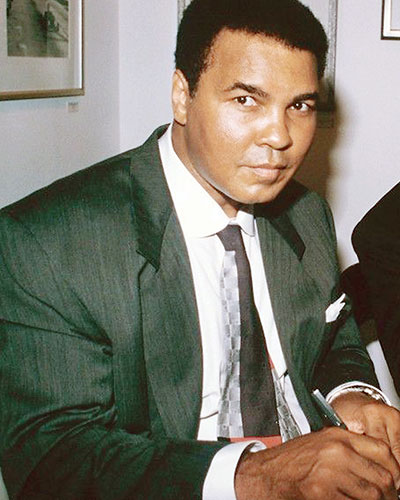THIS WEEK IN HISTORY
- 09 Feb - 15 Feb, 2019
Muhammad Ali was as polarising a superstar as the sports world has ever produced – both admired and vilified in the 60s and 70s for his religious, political and social stances. He was noted for his pre- and post-fight talk and bold fight predictions just as much as his boxing skills inside the ring.

He shot to fame by winning light-heavyweight gold at the 1960 Rome Olympics. Nicknamed "The Greatest", the American beat Sonny Liston in 1964 to win his first world title and became the first boxer to capture a world heavyweight title on three separate occasions. In 2005, calling him the greatest boxer of all time, President George W. Bush presented the Medal of Freedom to Ali in a White House ceremony.
Loved or hated, he remained one of the most recognizable people on the planet for 50 years. George Foreman, who lost his world title to Ali in the famous "Rumble in the Jungle" fight in Kinshasa in 1974, called him one of the greatest human beings he had ever met. In later life, Ali became something of a secular saint, a legend in soft focus. He was respected for having sacrificed more than three years of his boxing prime and untold millions of dollars for his anti-war principles after being banished from the ring; he was extolled for his unselfconscious gallantry in the face of incurable illness, and he was beloved for his accommodating sweetness in public.
COMMENTS